
Share your research results with the world! The University of Tsukuba’s URA efforts: A 4-day intensive workshop to improve information distribution skills
Background
The university has 2,000 researchers on its roster. How can we help them communicate the results of their research globally and amplify the university’s presence?
The University of Tsukuba is using its advanced knowledge and diverse culture to create innovation and solve problems faced by today’s complex society. Established as part of new university reforms in the 1970s, the school is perceived today to be a leader in the Japanese research sector, acting as a pioneer for new university approaches and cementing a global presence with new models that go beyond academia.
For the university, the ability to convey the results of its research far and wide, around the globe, is critical. The university wanted to make an impact not only in academia, but on society as a whole; it was aware of the need to promote the significance of its research both academically and socially.
In order to support its researchers, the University of Tsukuba created the role of University Research Administrators (URAs) as a position focused on crafting research strategy and securing funding.
The university has 2,000 researchers on its roster, yet the number of URA members is less than one per 50 faculty members.. The issue was how to effectively support researchers in sharing information about increasingly complex research amid a more global and diverse world.
This led to the University of Tsukuba launching a project with Loftwork. We explored how to shift researchers’ awareness and how to work with URAs to create policies to encourage information distribution at an organization-wide level in order to fully promote the results of research with major social significance to a wider audience around the world. This article looks back on how the project unfolded, with comments from project members.
Project members
Hideyuki Kato: Chief Research Administrator, University of Tsukuba URA Research Strategy Promotion Office
Yukie Hagiwara: Research Administrator, University of Tsukuba URA Research Strategy Promotion Office
Shogo Kurihara: Research Administrator, University of Tsukuba URA Research Strategy Promotion Office
Yohei Yamamoto: Professor of Mathematics and Physics, University of Tsukuba
Aki Tonami: Associate Professor of Business Science, University of Tsukuba
Yukie Sano: Assistant Professor in Policy and Planning Sciences, University of Tsukuba
Naomi Shimpo: Assistant Professor in Life and Environmental Sciences, University of Tsukuba
Shinya Yashiro: former Editor, Wired (Japanese edition)
Approach
A four-day workshop promoting mutual understanding between researchers and URAs and the social value of research results
The question: How should the University of Tsukuba share its research and show the wider academic and social significance of its research results? We began by suggesting a process in which researchers and URAs would both assess the situation and try to identify problems. In this way, the project started as an exploration of how to promote mutual understanding between the two groups and create the most optimal system to support researchers.

We thus designed an intensive four-day workshop and invited researchers who are actively engaged in information distribution to join the discussion in order to gain ideas from their case studies.
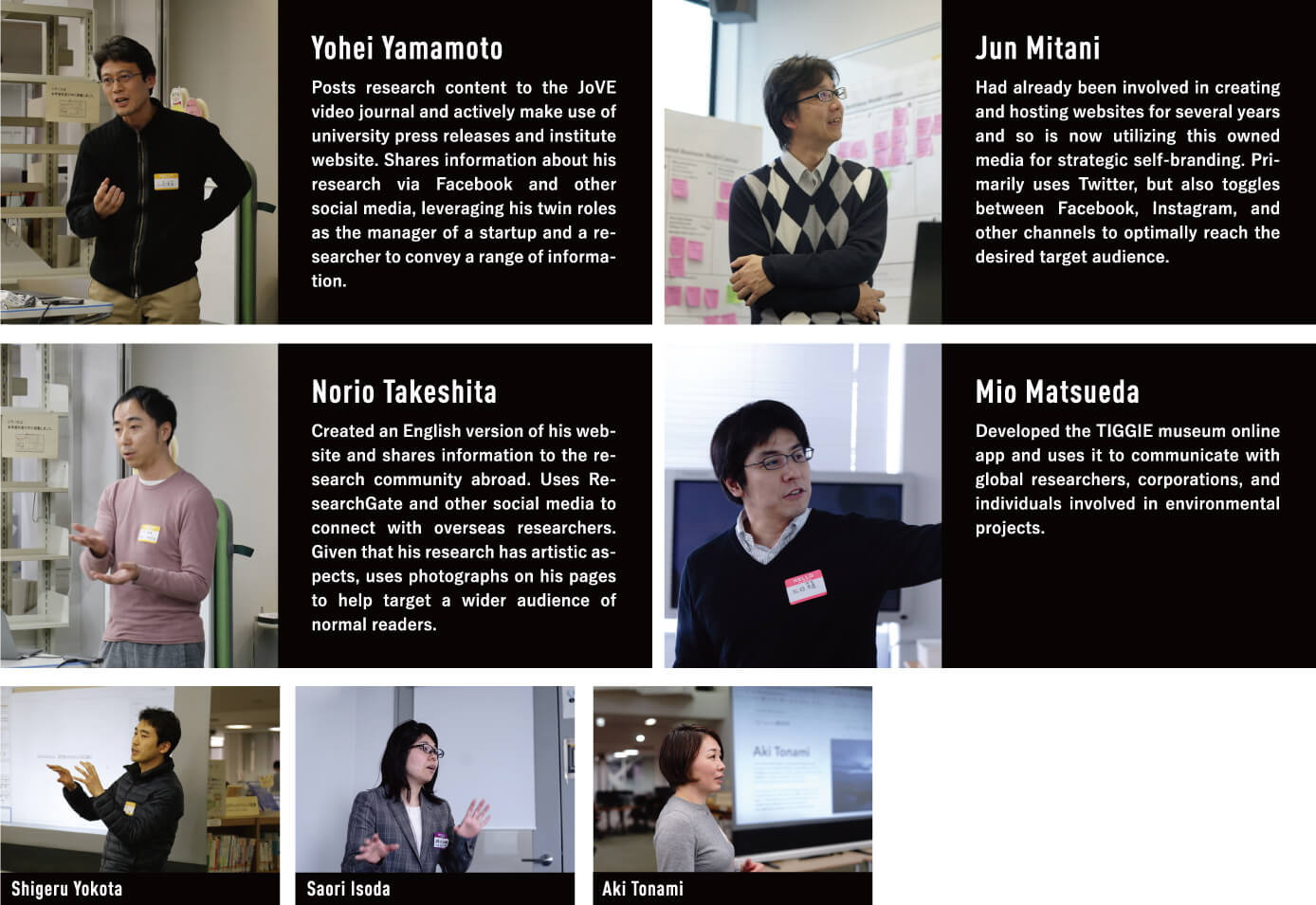
University and external specialists examine how to frame research in terms of its social significance
Good distribution of information hinges on collaborations with experts in making content reach a wide audience. The four-day workshop involved external specialists like editors, entrepreneurs, planners, and a PR agency. Early on, we envisaged this process not solely as internal debate, but one that would incorporate external perspectives in order to explore how to better promote content in the context of its significance to society at large.
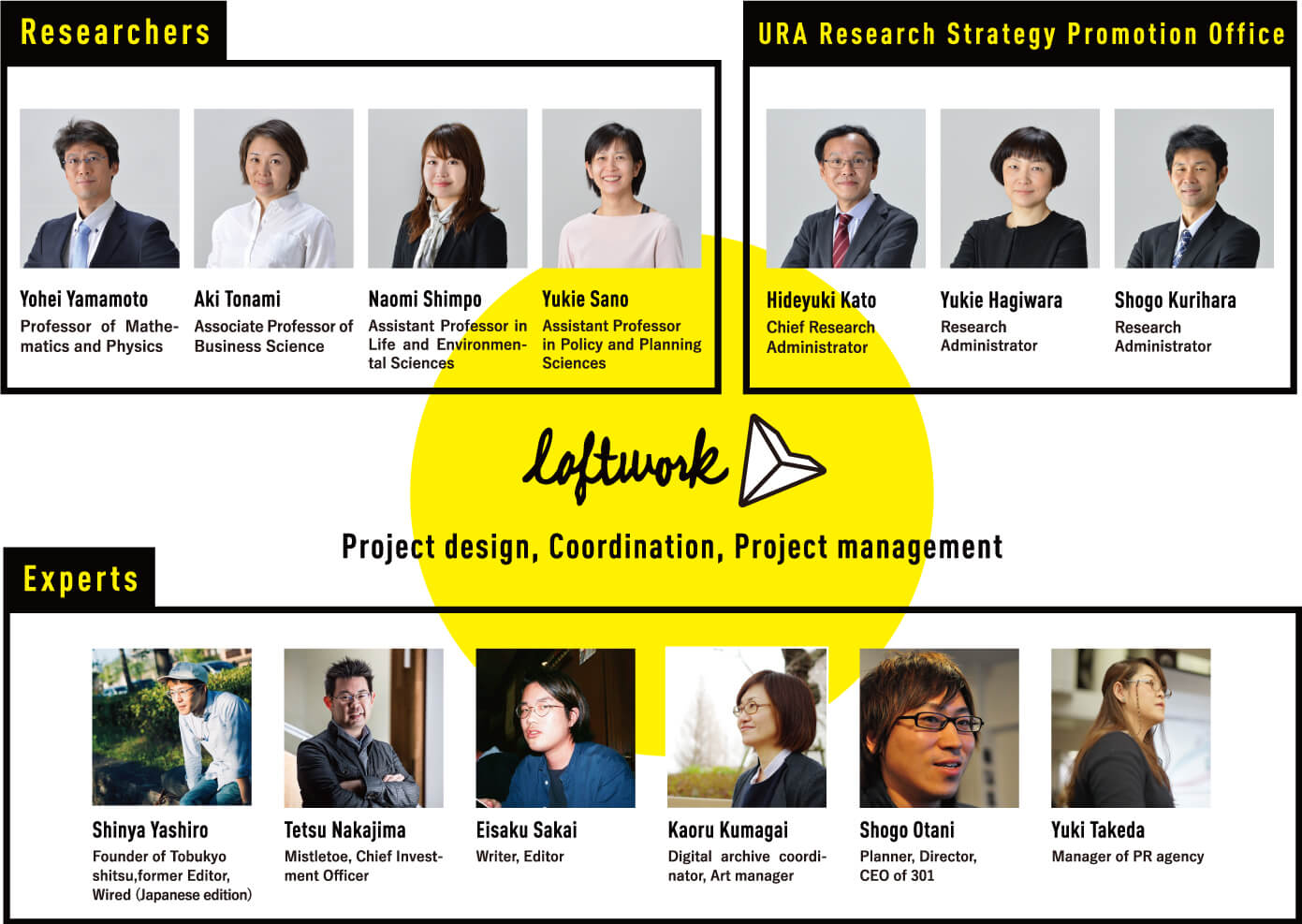
“Does the number of citations for a paper correspond to the academic value of that research?”
Shinya Yashiro, former editor of the Japanese edition of Wired, asked participants about their concerns about getting information out in the relatively closed context of academia.
Yashiro said,
“For example, let’s look at the standards for evaluating content. In online media, we often debate whether the number of pageviews is a valid metric for measuring what makes a good article. This is even more the case for research results, which can be of value to society. So the issue is determining how to measure the quality of your information sharing efforts.”
In this way, he posed a unique question through his experience working in media.
Organizing information around a framework for business growth
The workshop began by using a business model canvas to organize information about the University of Tsukuba researchers’ goals and activities, as well as issues related to better information distribution.
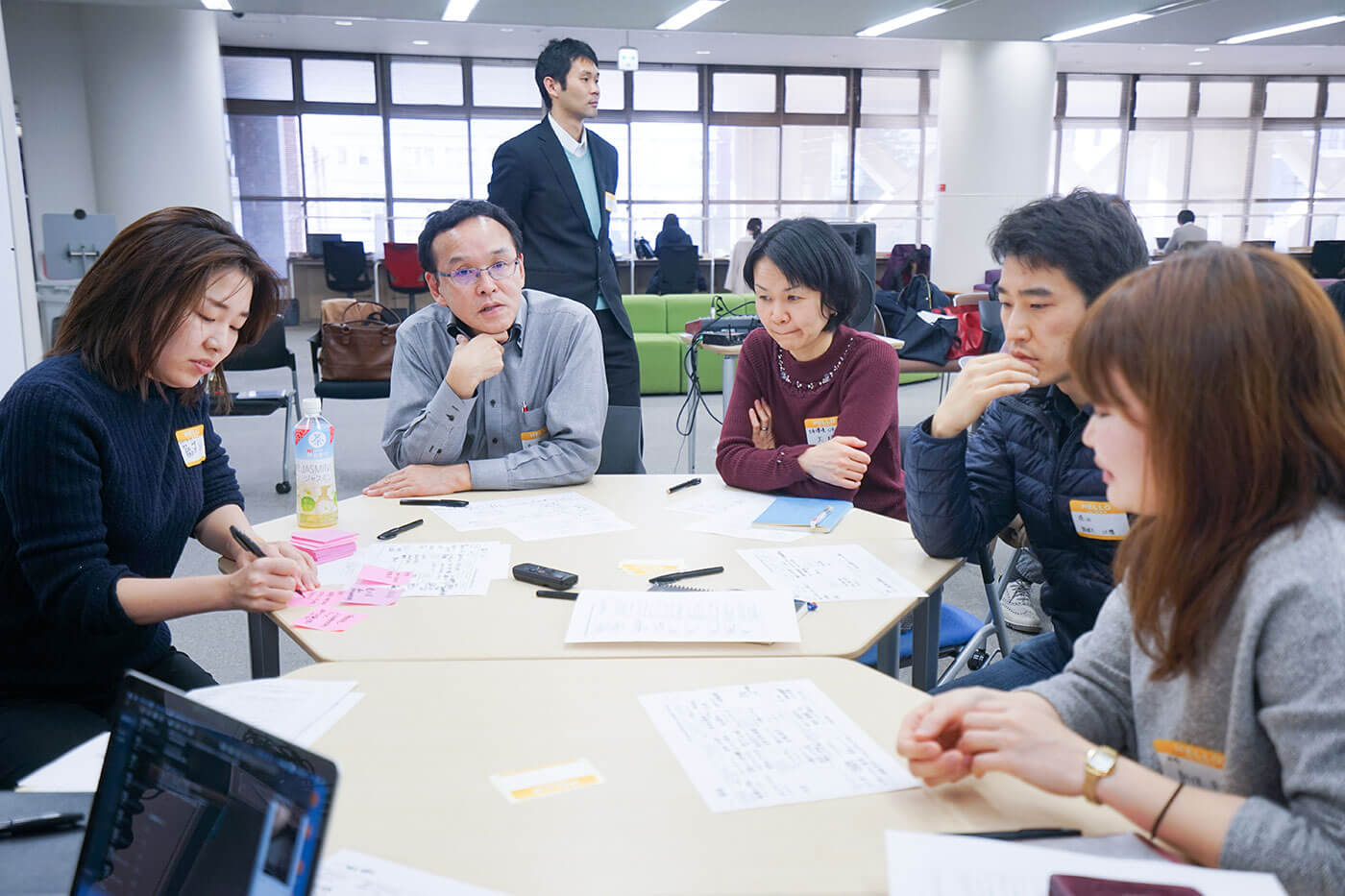
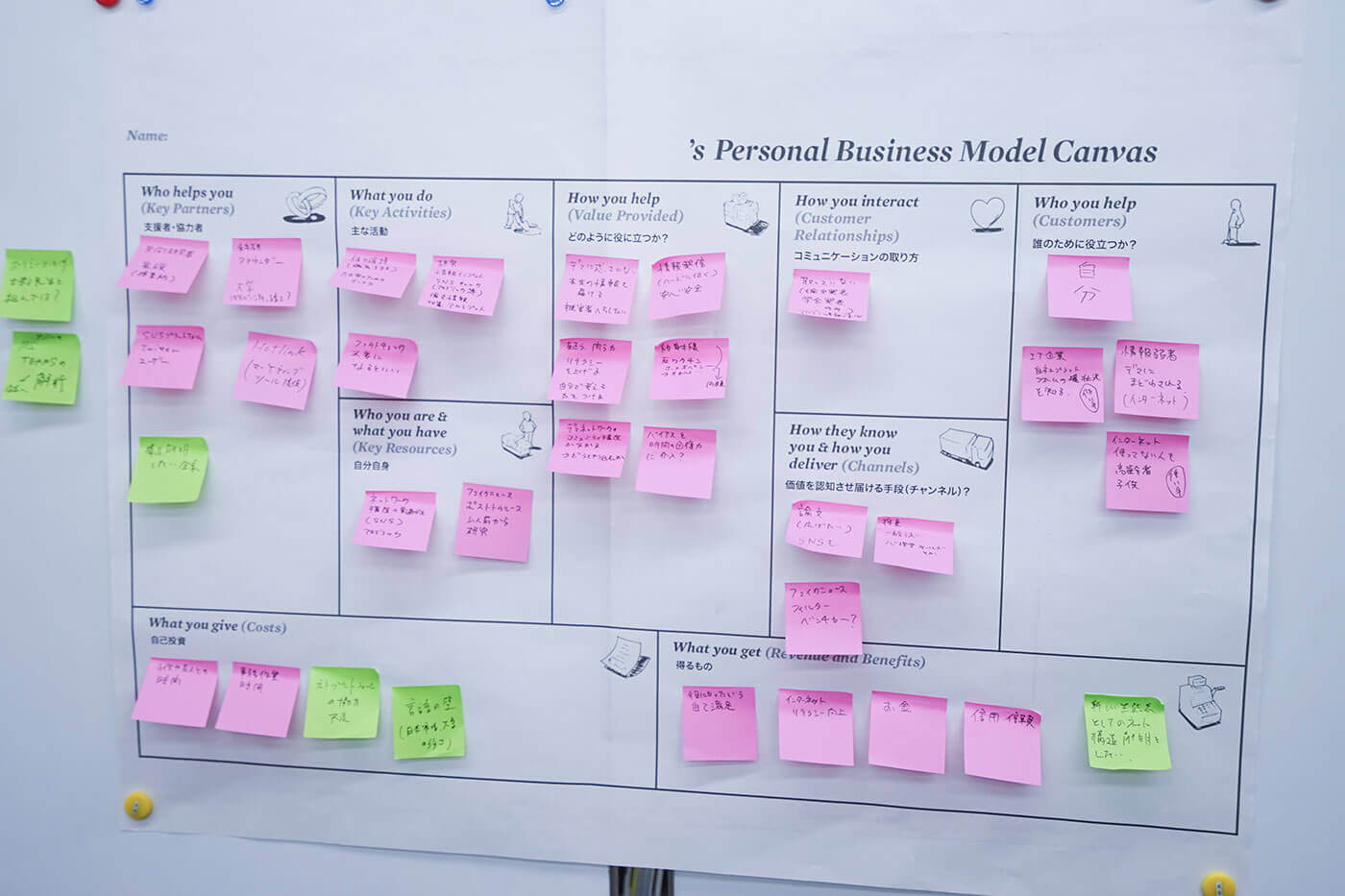
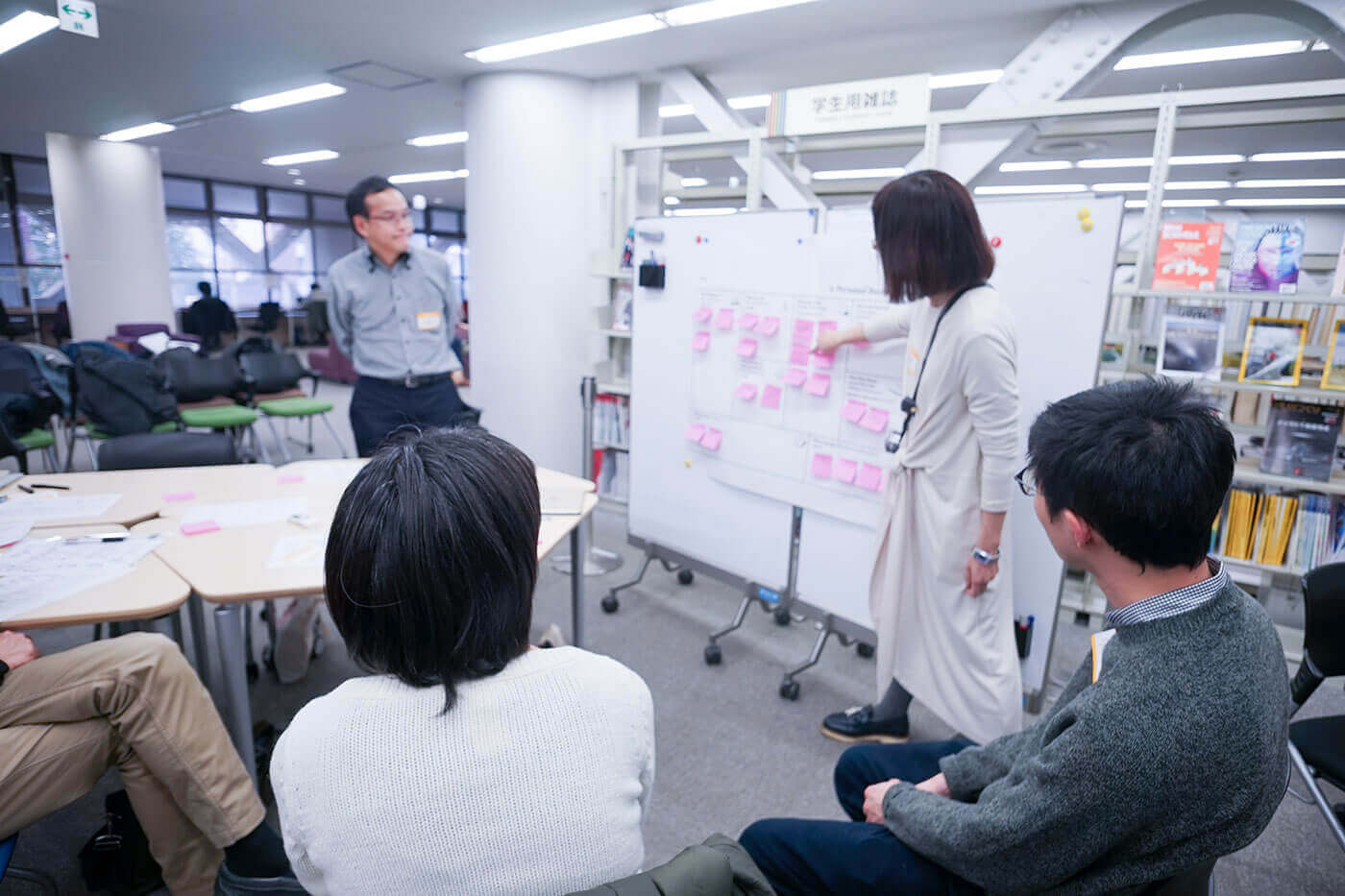
Given that every type of research has different targets, channels, and objectives, we determined the need to develop information distribution methods tailored to different types of research. Additionally, there was a discussion about whether the university should strategically promote information about its researchers and their work in order to enhance the value of the university as a whole.
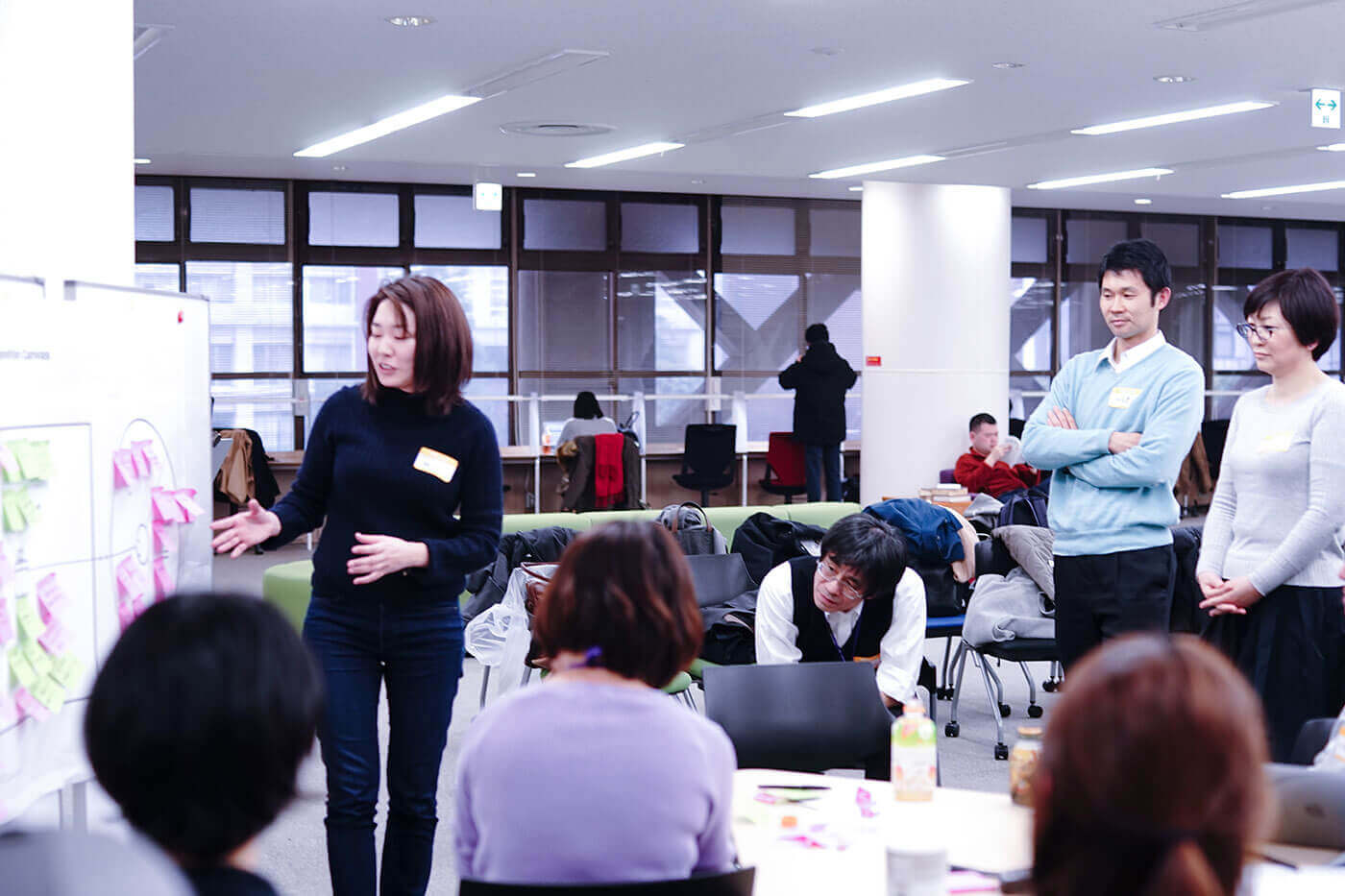
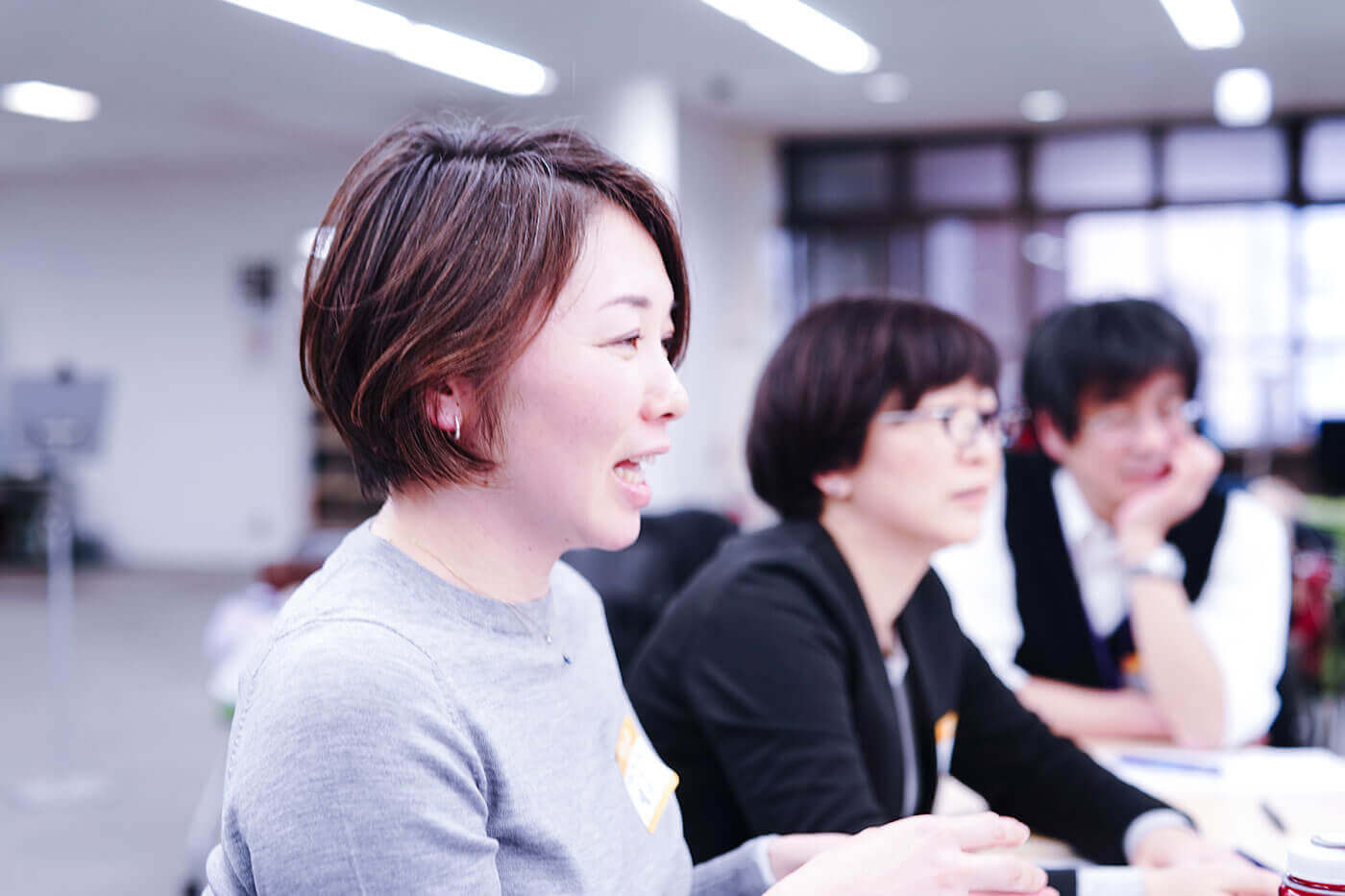
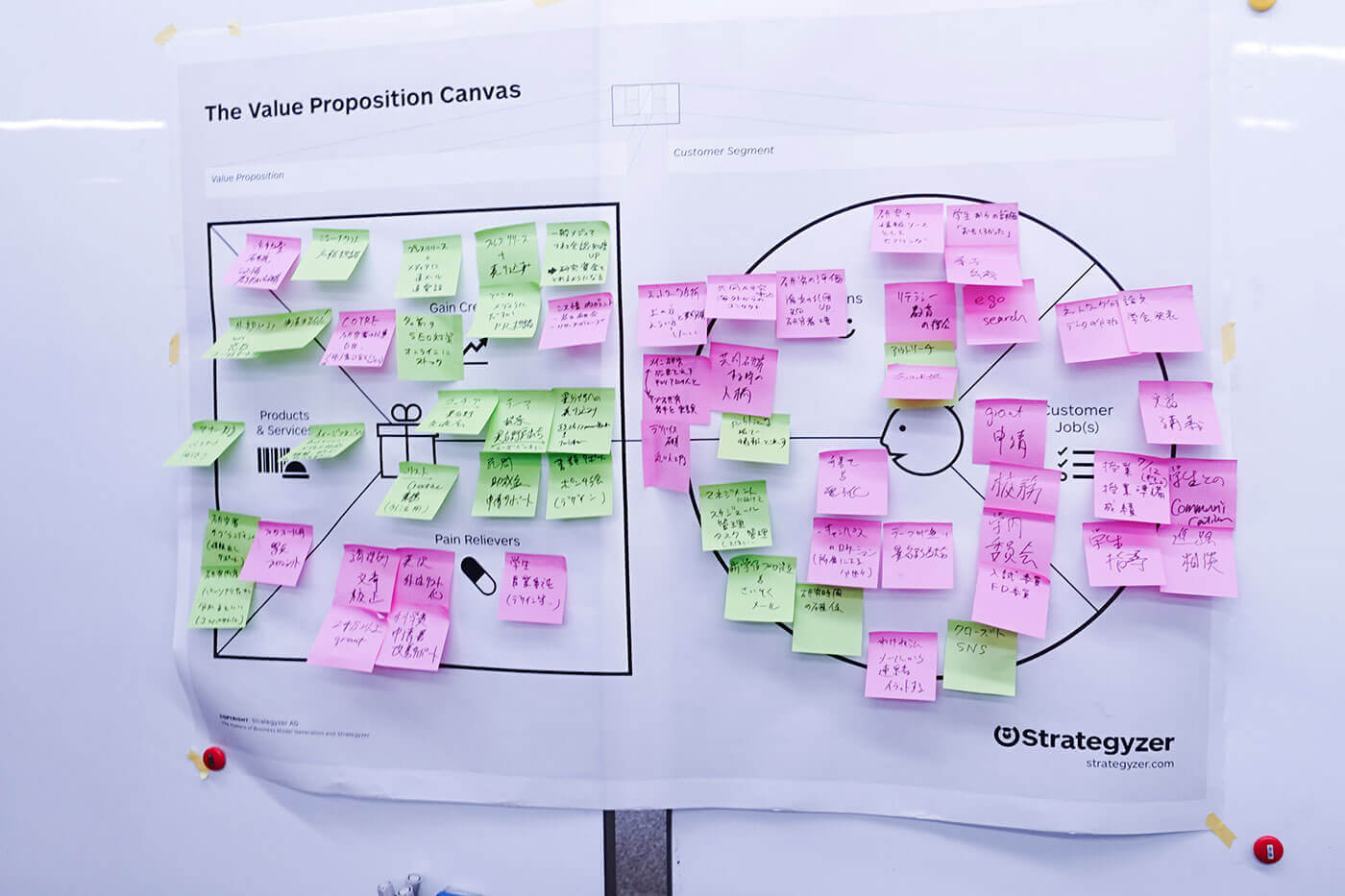
Yashiro reflected on the workshop with the following:
“We treated conveying information from researchers to external parties as the final step and gained insight from researchers to determine the optimal channels to post content on. It was quite an honor to work alongside passionate researchers and editors and explore ways of breaking down the walls to getting their information out there.”
Better information distribution leads to major opportunities
After laying out the conditions and issues researchers and their supporters face in day 1 and day 2 of the workshop, we proceeded to consider what the ideal approach was to distributing content. Who should researcher role models be conveying this information to? What would be the right channels to do so? A discussion ensued.
Yukie Sano, Assistant Professor in Policy and Planning Sciences, said, “We tend to focus on clawing back as much research time as possible and believe that information would get out there sooner or later if we did good work.”
Sano added,
“Communicating with intra- and extramural stakeholders allowed us to learn that spending a small amount of time on distributing information can lead to new research opportunities and major leverage.
Shortly after the workshop, a paper had just been published, so we posted an explanatory article to a website dedicated to introducing new papers. We were surprised to find that it got 2,200 views in one month. This is a figure we would never attain just by publishing the paper via traditional means. This greatly motivated us to do further research.
Implementing this process and gaining new insight with tangible numerical data provided us with concrete steps we could take and increased our motivation.”
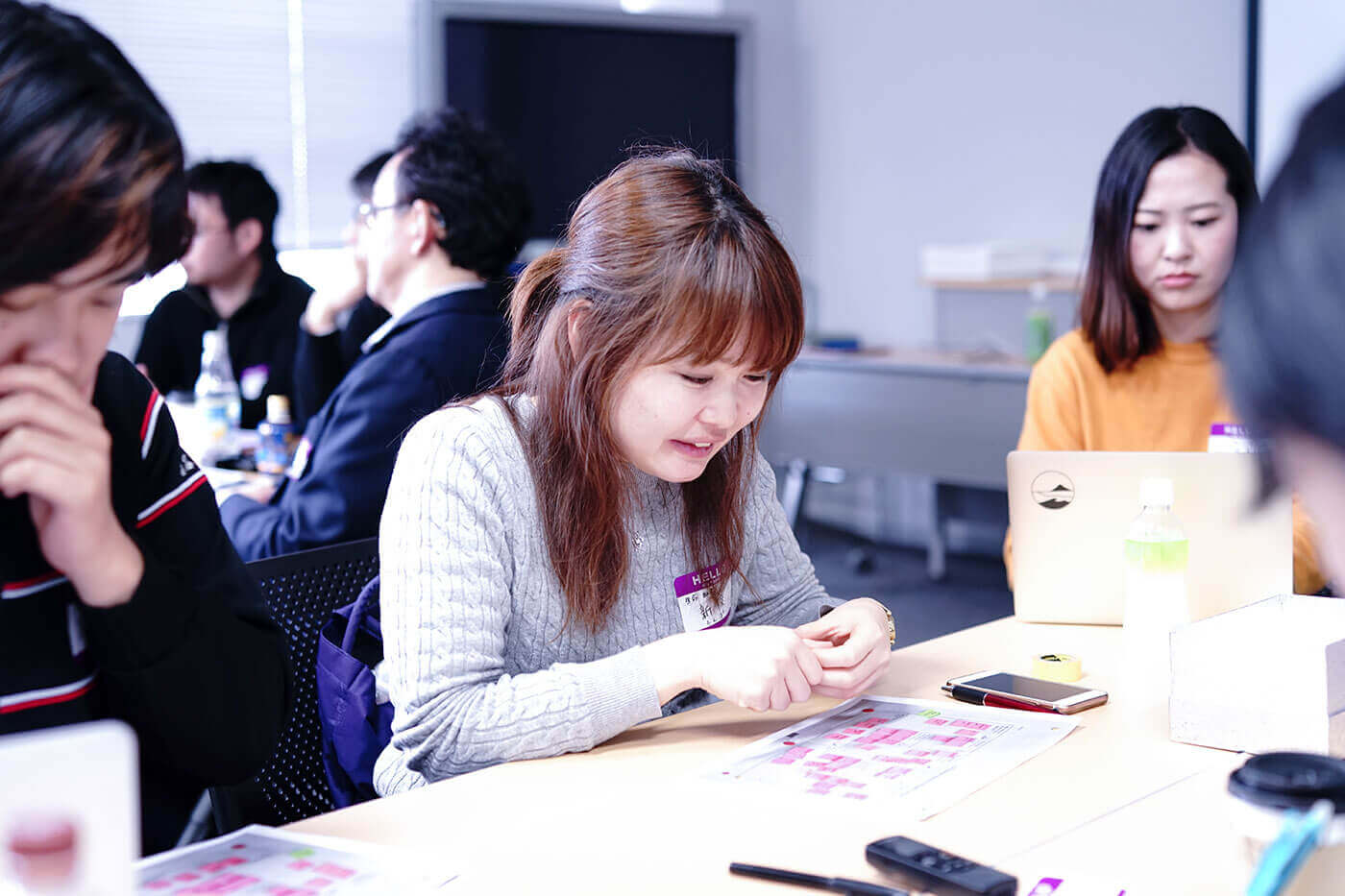
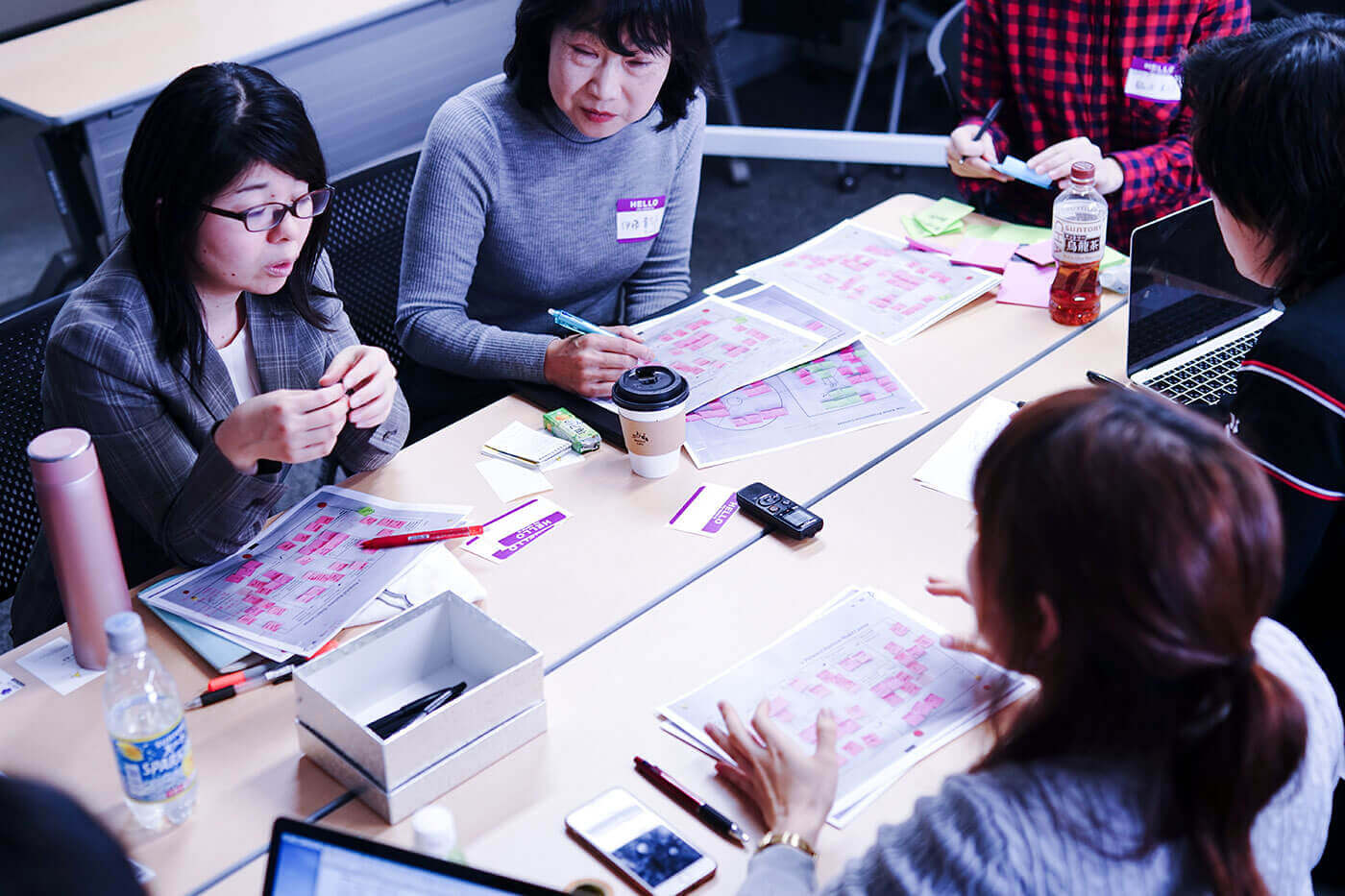
After identifying current conditions and issues researchers and supporters face, day 3 and 4 of the workshop were devoted to creating concrete measures to support researchers. We considered both strategies for groups of new and core researchers , as well as individual strategies, and created an action plan and roadmap outlining the implementation process. We used feedback from external stakeholders to further refine how to frame and pitch the social value of the research.
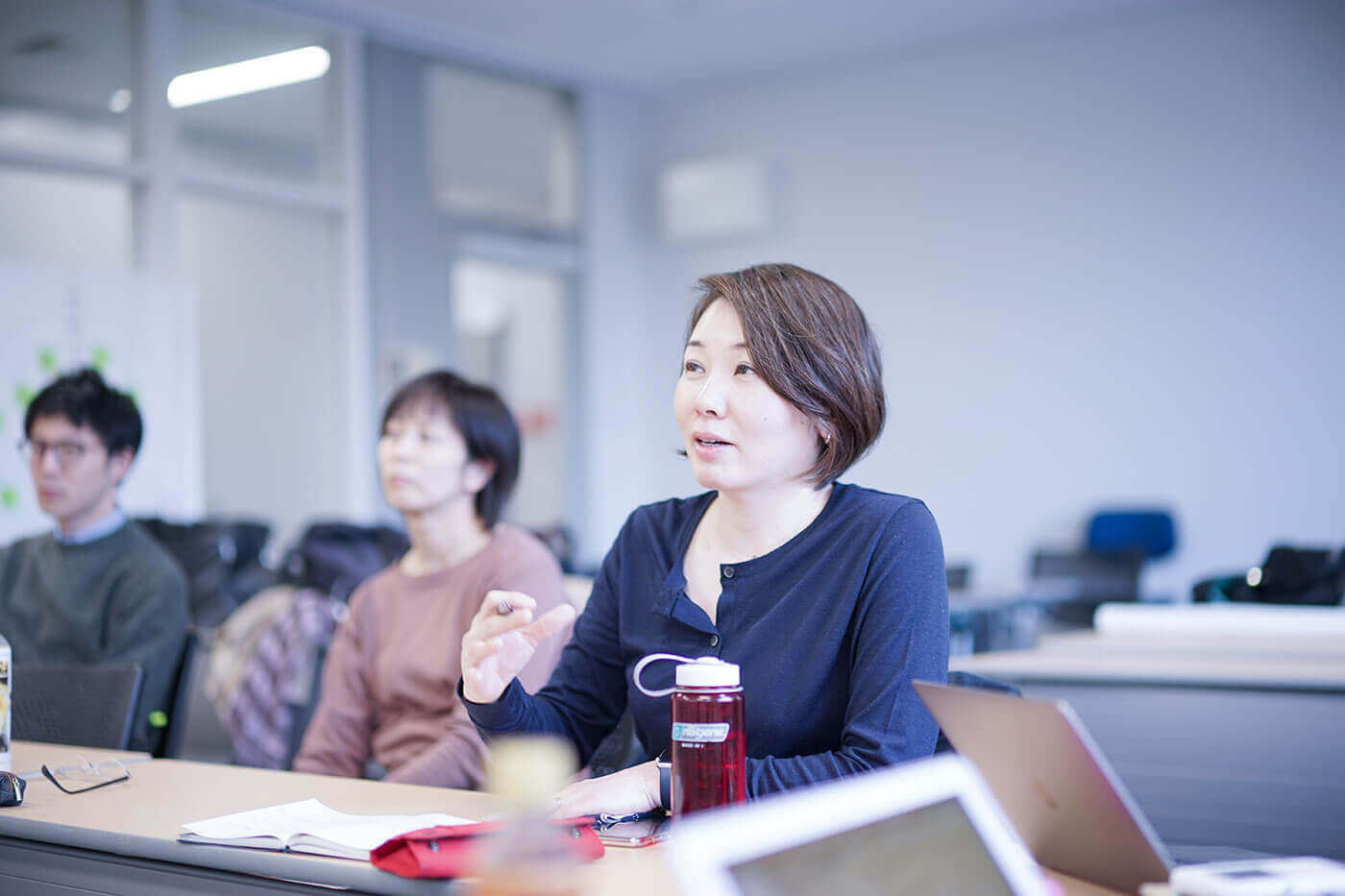
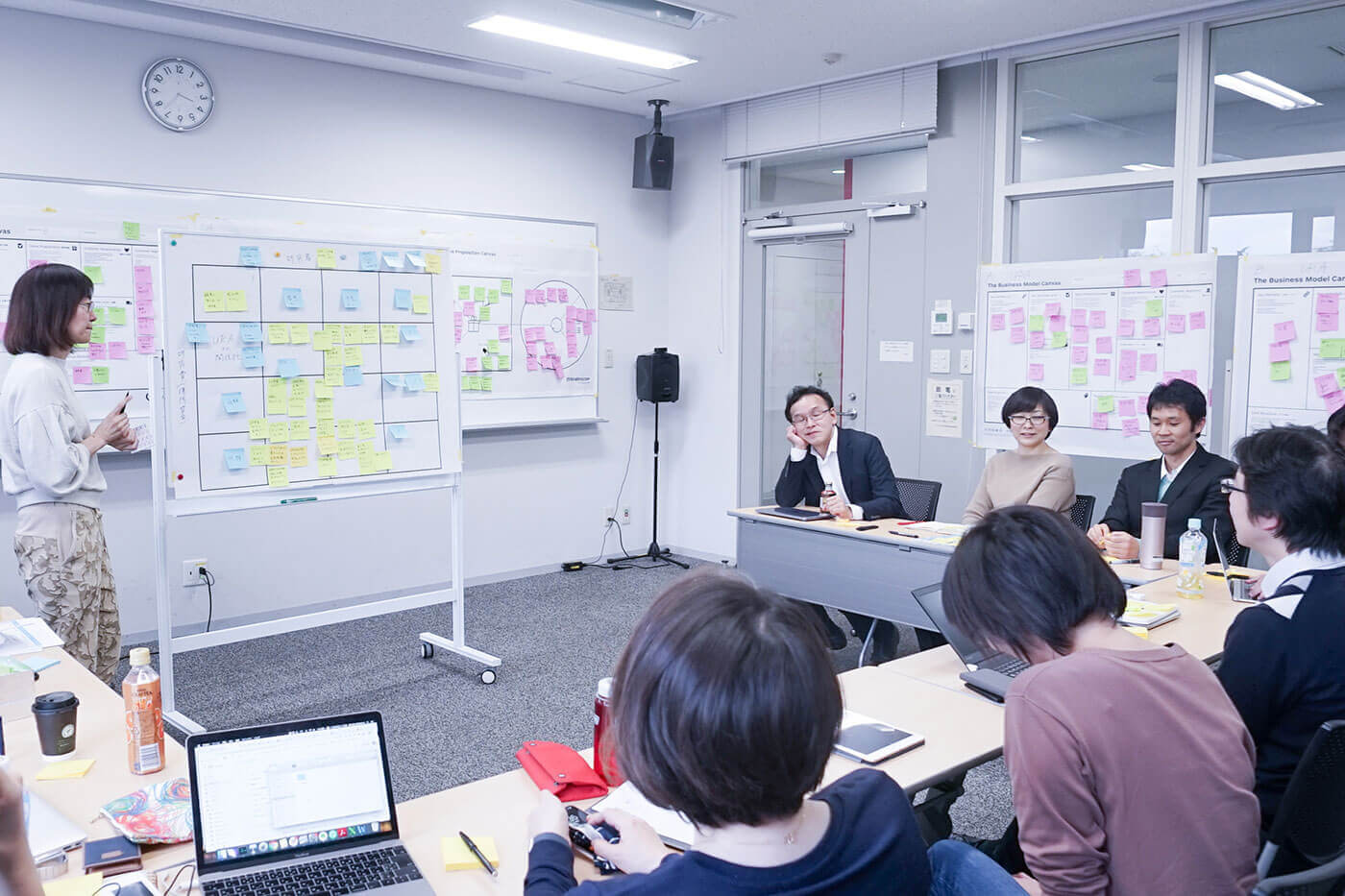

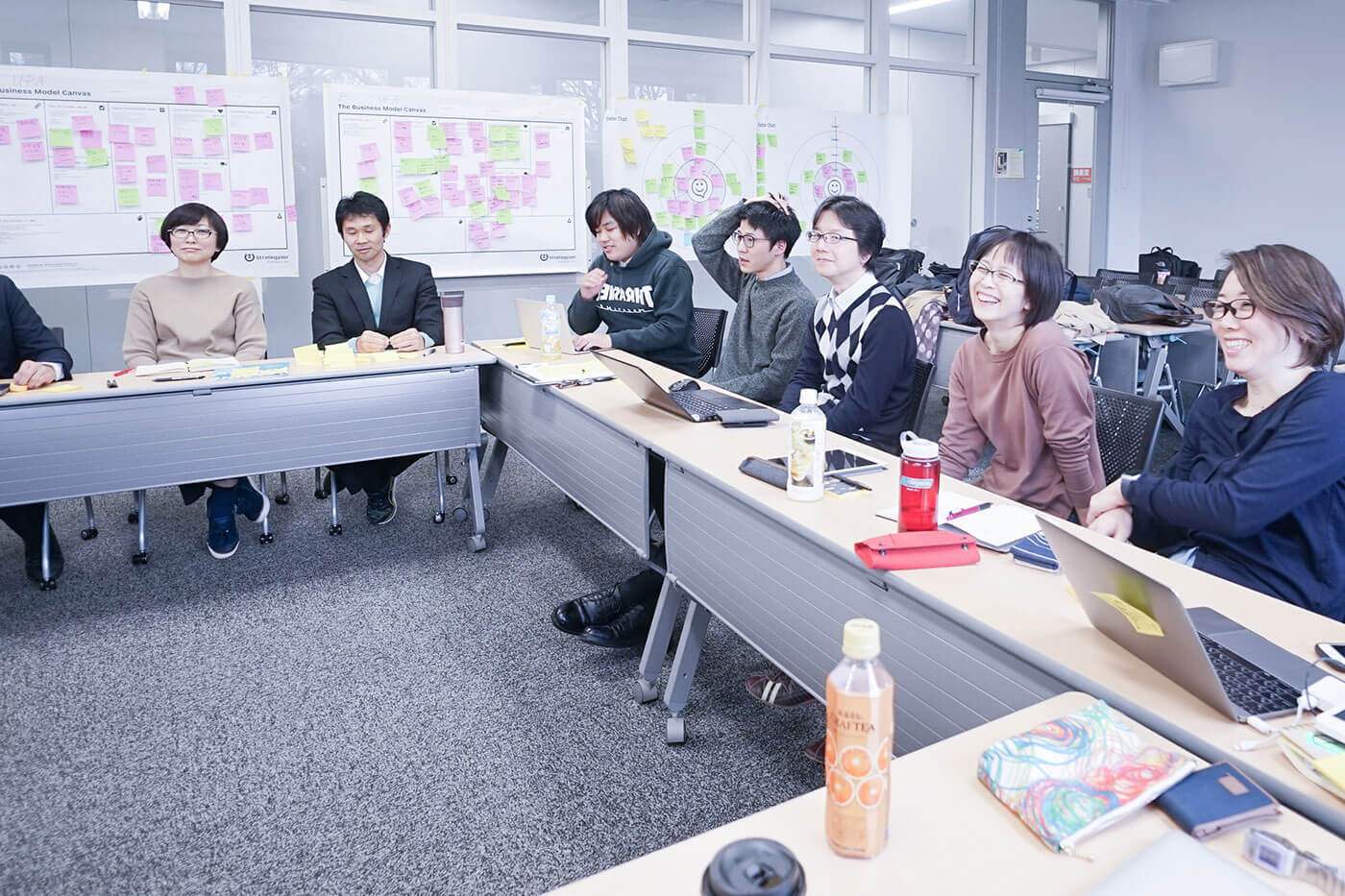
Learning from external specialists: an intramural seminar exploring better information distribution
Creating an ecosystem for widespread knowledge helps research to change the world
Taking the new perspectives gained from the workshop, we hosted an event to promote awareness of sharing research and drive greater recognition of URA activities throughout the university. The first step towards the success of the URA efforts is having potential users who were not previously served information learn about the research.
The event was titled “Targeting Strategies for Researchers: An Exploration With Four Experts of Using Information Distribution Techniques to Convey Value.” The goal was to create an open space where extramural stakeholders would join researchers in thinking about how to strategically share research around the world.
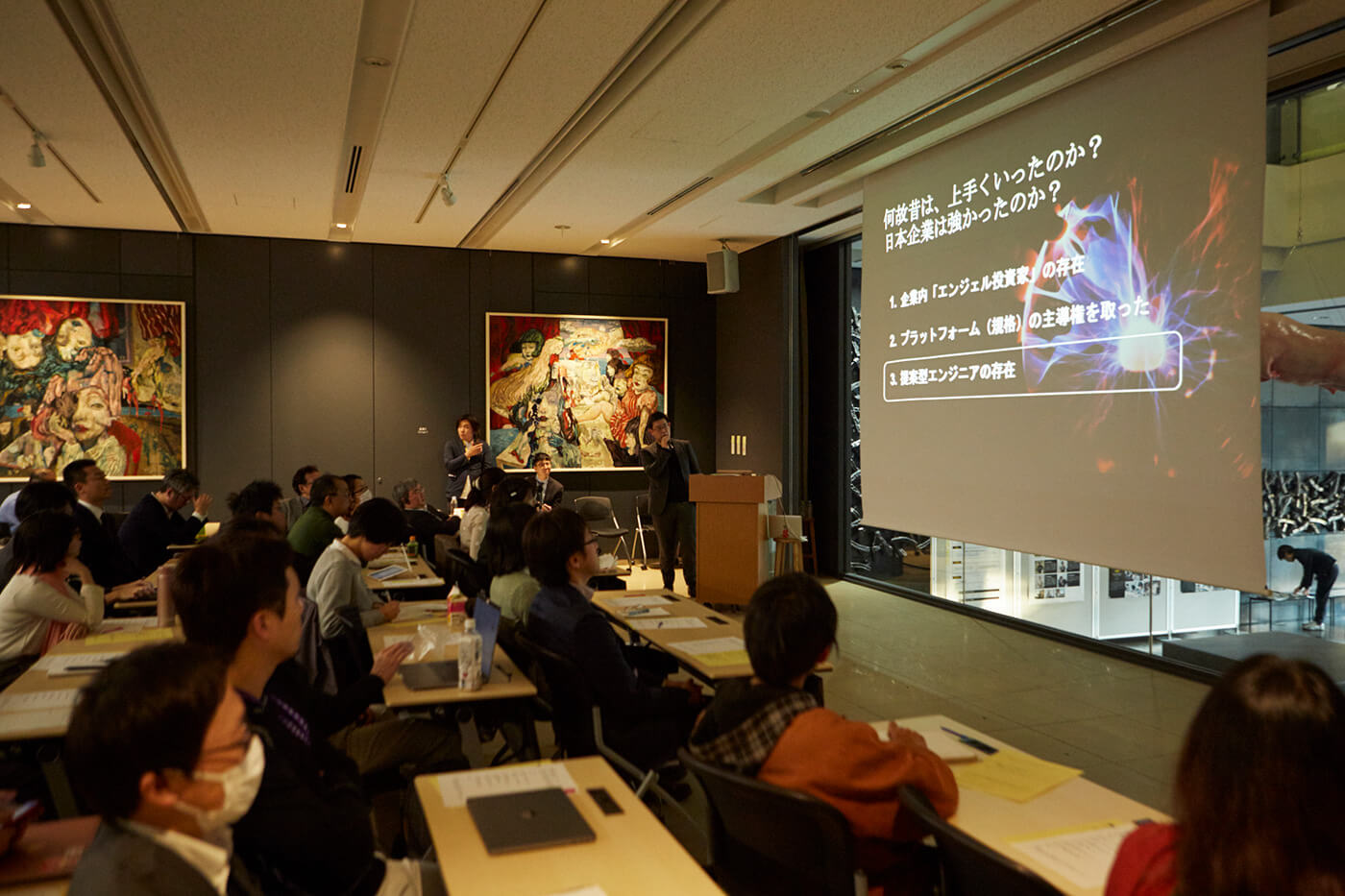
Kato, the URA who planned and executed the event, had this to say:
“There are so many events and programs at universities, making it difficult to get researchers on board with seminars about information distribution. The pointed title, “Is there any value in research results that don’t reach anyone?” was a bit of an experiment, but it was a full house, indicating that the importance of proper information distribution is a relevant issue. This was but the start of efforts to foster interest in promoting research, but I was definitely convinced by the power of information distribution when it’s done right.”
Result
Creation of information dissemination guidelines for researchers and URA
How should researchers promote their own activities to the world, and how should URAs support that? The result was the establishment of new group and individual measures with varying degrees of detail. Researchers determined particular media and trajectories to approach in terms of their target audience. There was also a presentation on specific methods to convey research outcomes to the world, such as individual websites, social media, and sites that published papers.
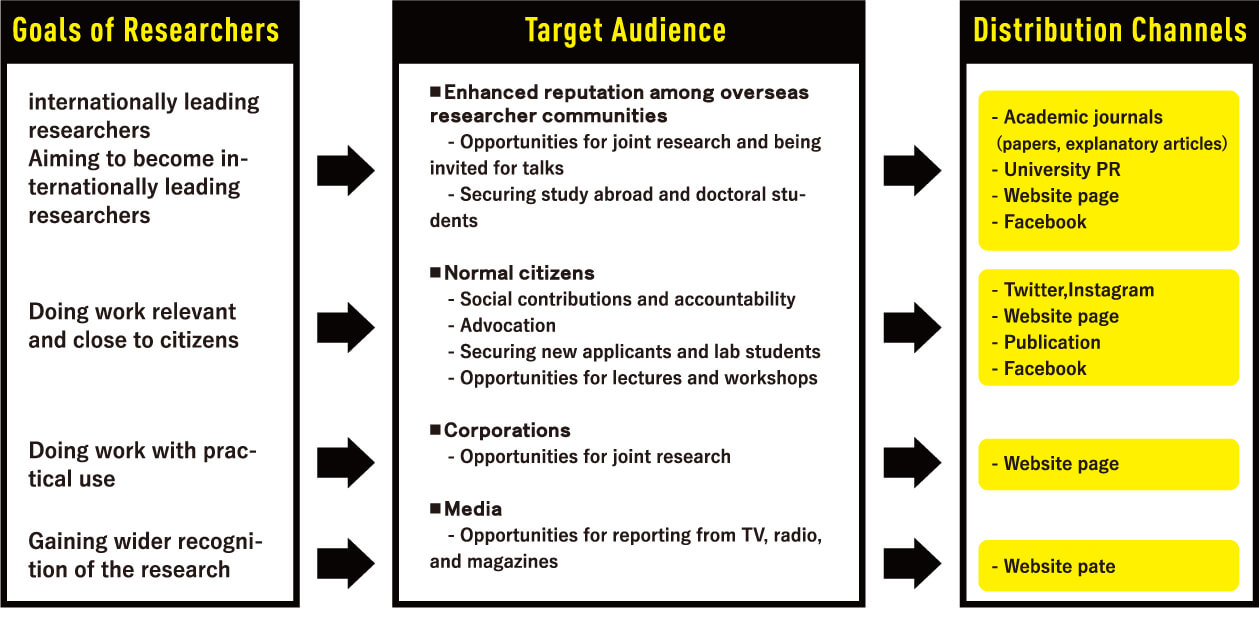
The URAs also came up with a service for promoting research outcomes far and wide in order to better help researchers. The general framework for an action plan, which includes visualizing members and activities, training and skills improvement, and hosting external events, helps a small group to pitch the value of their research to society.
Kato, the URA lead, had this to say:
“Universities are, in a way, a jumble of ‘sole proprietors’ who secure research funding in order to drive outcomes of academic significance. Yet universities themselves may be indifferent to whether that value is reaching those who need it, instead focusing on who is creating the value, rather than the subsequent effects of the research.
One major outcome of this project is that we were able to drill down from the vast group of researchers at our university to find those using unique philosophies or strategies to deliver academic value. These researchers are almost one-of-a-kind in being able to go toe-to-toe in debates with experts in information sharing, and it was truly inspirational to sit at the same table with them. We learned just how diverse information distribution is as a business, and the fact that we haven’t been able to fully implement this at the university yet suggests that there is major potential here for better spreading of our research to a wider audience.”
This is just the beginning of promoting research outcomes to the world and further heightening their social significance. Loftwork will continue highlighting the way University of Tsukuba URAs are pursuing these efforts per the new information sharing guidelines created during the workshop.
Member

Hideyuki Kato
University of Tsukuba
Chief Research Administrator

Yukie Hagiwara
University of Tsukuba
Research Administrator, University of Tsukuba URA Research Strategy Promotion Office

Shogo Kurihara
University of Tsukuba
Research Administrator, University of Tsukuba URA Research Strategy Promotion Office

Yohei Yamamoto
University of Tsukuba
Professor of Mathematics and Physics,

Aki Tonami
University of Tsukuba
Associate Professor of Business Science
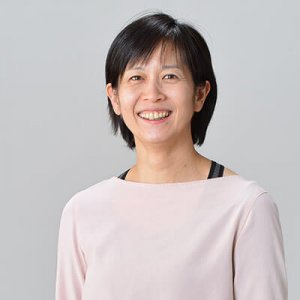
Yukie Sano
University of Tsukuba
Assistant Professor in Policy and Planning Sciences

Naomi Shimpo
University of Tsukuba
Assistant Professor in Life and Environmental Sciences

Shinya Yashiro
Founder of Tobukyoshitsu, former Editor, Wired (Japanese edition)

Michiko Wakimizu
Loftwork Inc.
Producer
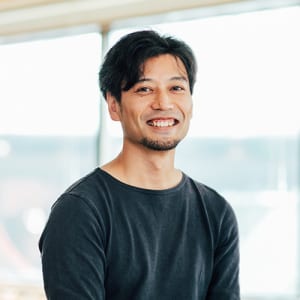
Toshimasa Kawai
Loftwork Inc. / FabCafe LLP
FabCafe LLP COO
Next Contents






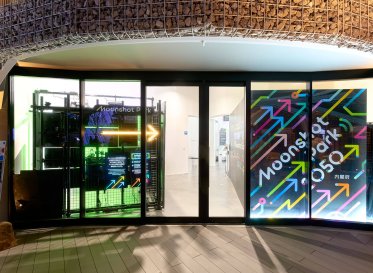

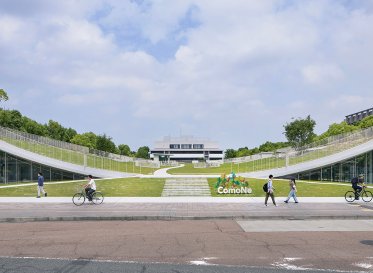



 Targeting strategy for researchers, an event report">
Targeting strategy for researchers, an event report">
